Even when I’d decided that the claims of the LDS Church were not grounded in reality, it took a while for me to resign formally. It was a big deal, so I didn’t want to rush it. But after about a year of not believing, I decided that it was time to write my Exit Letter.
You see, in the LDS Church, even if you no longer attend, or no longer even consider yourself a Mormon, you are still being counted in the church’s records. (Which are thus a bit inflated.) To no longer be counted, you need to resign formally.
A member of the Stake Presidency (who is also a good friend) was very helpful in the process. He explained that if I wanted to, I could submit a letter of resignation to the bishop of my ward, the bishop would write back asking if I was sure, I could write back and say ‘yes’, and then the matter would go to Salt Lake. There are ways around the rigamarole, but that was direct enough for my purposes.
What follows is the text of my exit letter. I don’t recommend using my letter as a model. Richard Packham has a page with information that you can adapt for your own purposes. An exit letter only has to be a one-sentence deal. But I’m a bit more verbose than that, so I wanted my letter to be a manifesto of sorts. You only get to write one of these, after all! In the end, it was exactly what I wanted to say.
Here’s the letter:
Dear (first name of bishop),
This letter is to notify you that I resign my membership in the Church of Jesus Christ of Latter-day Saints, effective immediately. I’d like to ask you to carry out the necessary paperwork to remove my name from the records of the Church. I recognise that according to Church doctrine this cancels all ordinances I have engaged in, and I have made my choice with that consideration in mind.
This is not a decision that I have made lightly. ‘Being Mormon’ has been a part of my identity throughout my life, and I have made many sacrifices in service of the Church because I thought it was right. The process of ‘deconversion’ has at times been difficult. However, I have also found it to be immensely worthwhile. I have gained the ability to reason without worrying about the presumed opinions of hypothetical beings, and I am better able to enjoy and value every day of this life with the people I love, while still being the moral agent I have always been.
In my youth, the LDS Church instilled in me the highest regard for truth. That was what made it better than other churches — it had the truth, or so I thought. Ironically, it was this regard for truth that led me away from religion in general, and Mormonism in particular. As I became more aware of the scientific method, with its reliance on empirical, real-world evidence, it became clear to me that the Church was promoting an essentially false method for finding truth. Latter-day Saints try to evaluate the truth of an idea by how that idea makes them feel. They try to maintain their belief by having faith-promoting experiences and by bearing testimony to each other. But feelings, experiences, and testimony are not reliable sources of evidence because they are coloured by our tendency to see what we want to see. By contrast, the scientific method requires evidence to establish the truthfulness of claims, and it offers a set of tools that control for our human biases and our tendency for wishful thinking.
Science and religion are opposite and irreconcilable ways of understanding the world. Science does a better job. It offers testable ideas, and makes predictions that are confirmed by experimentation and observation. Religion fails miserably at this, but believers are expected to ‘have faith’ and continue believing anyway. I’m pleased to say that I no longer believe in supernatural beings — gods, angels, spirits, or devils — because there is simply no empirical evidence for the existence of such beings, and there are better explanations for the experiences people claim as evidence. I will be very interested should any good evidence appear in the future, though I find it rather unlikely. In the meantime, I do not wish to be a member of an organisation that promotes a superstitious and magical worldview, of which the LDS Church is only one example.
That said, I’d like to add that my experience with the Church — both inside and outside — has been a largely positive one where I have learned much. I have recently had occasion to speak to someone who was going through the deconversion process in his faith, and I observed that our experiences were very similar, with one exception: his church ostracises its unbelievers. The threat of losing his family and social contacts at a time of great change has caused him an added dimension of grief. I am glad that Mormons do not engage in this tactic, and that my LDS friends are still my friends, though I no longer share their worldview.
Thank you for your timely handling of this matter. I would appreciate if you could confirm when my request has been processed.
Best regards,
Daniel Midgley
In the weeks after posting my letter, I had several enjoyable chats with church leaders, in which I asked if they had any evidence for various Mormon doctrines yet, and they tried to explain why I shouldn’t need any. Sadly, their enthusiasm for these chats waned long before mine did. And then some months later, I received my very own letter from one Mr Greg Dodge in Salt Lake City, informing me I was officially No Longer Mormon. I’m having it framed.
My exit letter reflected my experience in the LDS Church. Yours will no doubt be different. But whatever your circumstances, if you no longer believe in the church, there are some good reasons for making an official resignation. Otherwise, you’re still being counted in their statistics, and as long as you’re on their rolls, the things they do are done with your tacit approval. I found a psychological benefit to having that sense of closure. My status on the outside matched my status on the inside, and that’s a great feeling.
To date, my resignation from the LDS Church is the intellectual accomplishment I’m proudest of. I was able to overcome a lifetime of religious conditioning, centuries of socio-cultural tradition, and millions of years of human perceptual weirdness, with only my mind.
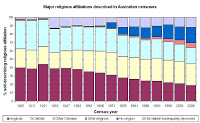

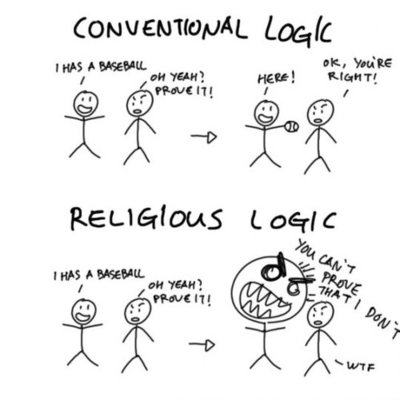

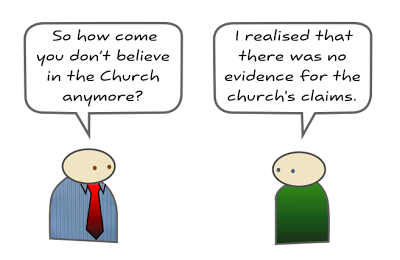

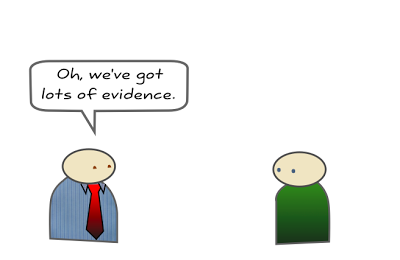
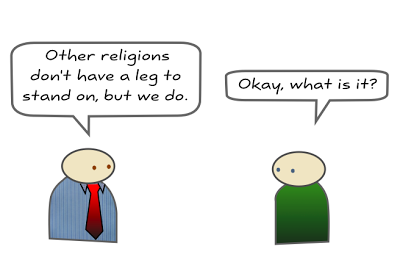
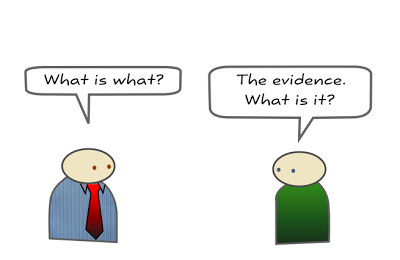

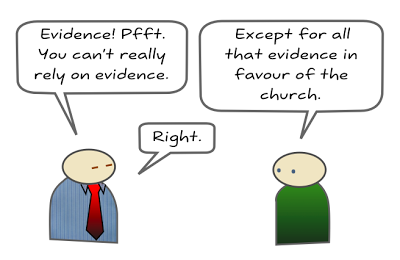
Recent Comments